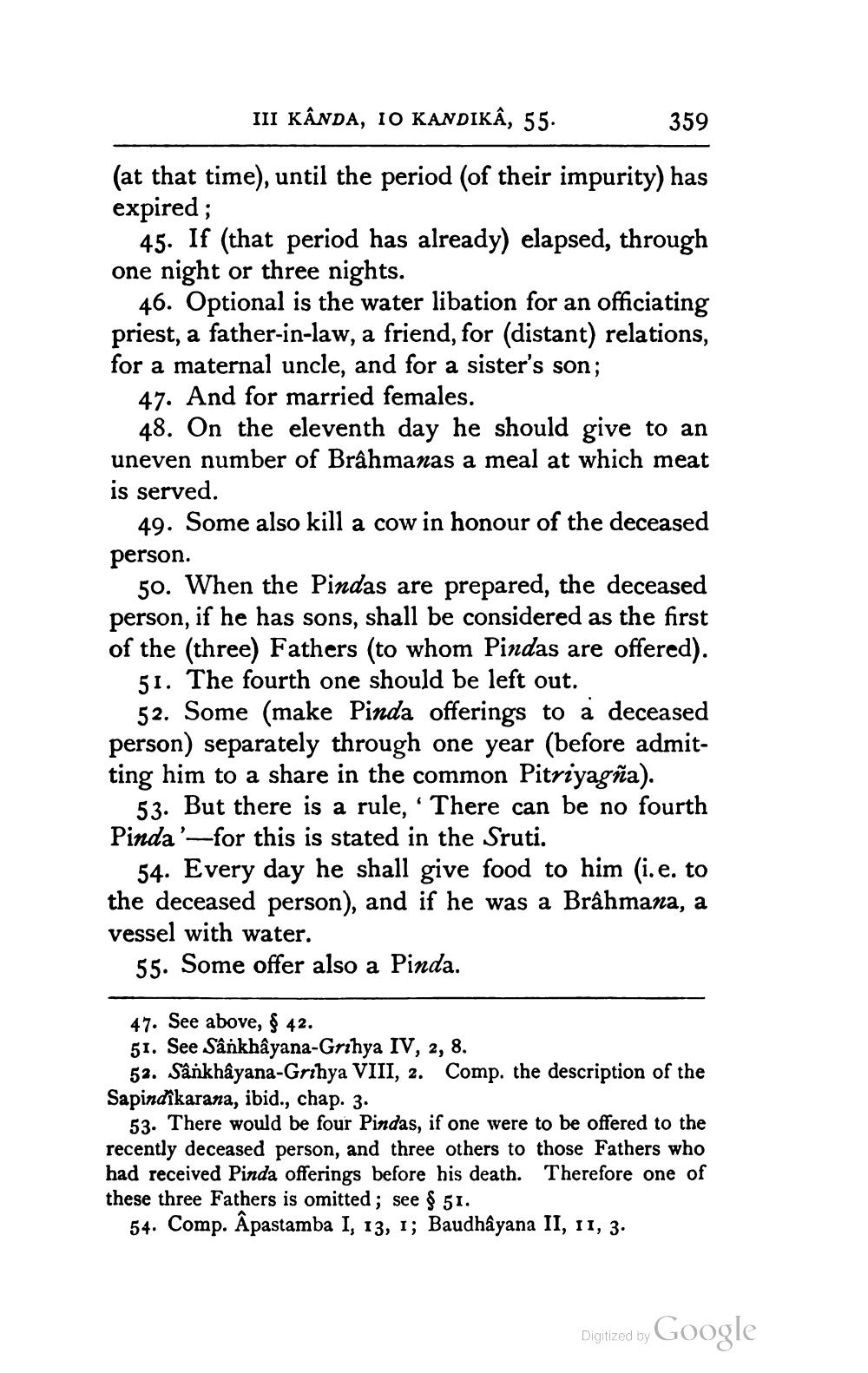________________
III KÂNDA, 10 KANDIKÂ, 55.
359
(at that time), until the period (of their impurity) has expired;
45. If (that period has already) elapsed, through one night or three nights.
46. Optional is the water libation for an officiating priest, a father-in-law, a friend, for (distant) relations, for a maternal uncle, and for a sister's son;
47. And for married females.
48. On the eleventh day he should give to an uneven number of Brâhmanas a meal at which meat is served.
49. Some also kill a cow in honour of the deceased person.
50. When the Pindas are prepared, the deceased person, if he has sons, shall be considered as the first of the (three) Fathers (to whom Pindas are offered).
51. The fourth one should be left out.
52. Some (make Pinda offerings to a deceased person) separately through one year (before admitting him to a share in the common Pitriyagña).
53. But there is a rule, “There can be no fourth Pinda'-for this is stated in the Sruti.
54. Every day he shall give food to him (.e. to the deceased person), and if he was a Brâhmana, a vessel with water.
55. Some offer also a Pinda.
47. See above, $ 42. 51. See Sânkhâyana-Grıhya IV, 2, 8.
52. Sânkhâyana-Gríhya VIII, 2. Comp. the description of the Sapindîkarana, ibid., chap. 3.
53. There would be four Pindas, if one were to be offered to the recently deceased person, and three others to those Fathers who had received Pinda offerings before his death. Therefore one of these three Fathers is omitted; see $ 51.
54. Comp. Apastamba I, 13, 1; Baudhayana II, 11, 3.
Digitized by Google




